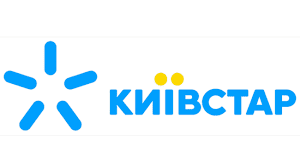
Ukraine as of September 9, 2019 threshed 39.7 million tonnes of grain and leguminous crops from 10.1 million ha (66% of the target) with an average yield of 3.92 tonnes per ha, the Agricultural Policy and Food Ministry of Ukraine has reported. According to the ministry, 281,000 tonnes of corn were threshed from an area of 46,000 ha (1%), buckwheat – 29,000 tonnes from 46,000 ha (32%), millet – 110,000 tonnes from 58,000 ha (64%). Early grain and leguminous crops collected 39.2 million tonnes from an area of 9.96 million hectares.
In addition, 2.5 million tonnes of sunflower were harvested from 1.2 million hectares (21%) with a yield of 2.04 tonnes per ha and 484,000 tonnes of soybeans from 214,000 ha (14%) with a yield of 2.26 tonnes per ha.
As reported, the ministry predicts this year’s harvest in Ukraine at 71.1 million tonnes (of which 27.8 million tonnes of wheat) compared to 70.1 million tonnes in 2018.

The national football team of Ukraine has tied the score of 2-2 in a friendly match with the team of Nigeria. The meeting took place in Dnipro on Tuesday evening. The Ukrainians played a poor half time, missing a quick goal in the fourth minute, and then the Nigerians in the 34th minute secured their advantage.
After the break, the team of Andriy Shevchenko managed to reverse the game course. In the 78th minute, Oleksandr Zinchenko kicked a goal, and two minutes later Roman Yaremchuk leveled.
Ukraine confidently leads in its qualifying group Euro 2020, being ahead of the teams of Portugal and Serbia.

JSC Ukrzaliznytsia (Kyiv) in several weeks will present a strategy for reforming procurement, Ukrzaliznytsia Board Chairman Yevhen Kravtsov has said.
“Everyone asks if a conversation has already taken place with the new head of the Ministry of Infrastructure of Ukraine Vladyslav Krykliy. Yes, and very detailed. I can already say about the priority steps. Ukrzaliznytsia has a green light to make order in procurements,” he wrote on his Facebook page.
According to him, in particular, Ukrzaliznytsia intends to create a public council on increasing transparency and procurement efficiency with the participation of representatives of anti-corruption nongovernmental organizations and the media.
In addition, Kravtsov said that Ukrzaliznytsia begins a comprehensive audit at the branch of the Center for the Provision of Production, where, according to him, the largest amount of procurement is made. In addition, an internal audit of the Service Center is ongoing.
“I am tired of reading media reports about obscure tenders and personally canceling them. Such a volume of procurement cannot be coordinated manually. It is good that we respond to signals from the public, but it is bad that we give them reasons [to make these signals],” he said.

The updated state construction standards, which ban to arrange hotels, hostels and shops with a total area over 1,000 square meters in the new housing complexes, will come into force from January 1, 2020, a press service of Deputy Minister of Regional Development, Construction, Housing and Utilities Lev Partskhaladze has said.
According to a report, new state construction standards also ban to arrange in the housing complex specialized establishments and enterprises, operation of which can cause air or territory pollution; specialized stores of construction materials, lubricants and other goods (for example, paints, varnishes, flammable substances and materials); workshops for the repair of shoes and household appliances and appliances with an area of over 100 square meters: baths, saunas, production facilities, funeral homes and others.
At the same time, the document permits designing on any floors of the housing complex built-in and built-in attached public premises: shops, cafes, beauty salons, bank branches, etc. Previously, this was permitted only up to the third floor inclusively.
The norm applies exclusively to new construction of the residential buildings. In addition, a mandatory requirement for the placement of such a built-in institution is placing it in a separate fire compartment.
The exception is objects that negatively affect a person in terms of noise, vibration, electromagnetic radiation and radiation. For example, a cafe with a round-the-clock mode of operation, increased noise levels and so on.
BANS, CONSTRUCTION MINISTRY, HOSTELS, HOUSING COMPLEXES, SHOPS, SQUARE METERS

The customs office should address the issues of “grey” imports of mobile terminals, not mobile communications operators.
“As for IMEI codes [international mobile equipment identity], we oppose to disconnecting subscribers due to the fact that an unscrupulous seller sold them a ‘grey’ phone. The fight against illegal import and sale of mobile phones is a function of customs authorities and law enforcement agencies. Shifting this work to telecom operators is wrong,” Kyivstar President Alexander Komarov said in an interview with Interfax-Ukraine.
He also said that in order to solve the problem of stolen telephones there is a so-called “black list of devices,” into which the “phones” get under a statement of the owner about theft or loss and after that they can no longer be used in the networks of operators of a particular country.
At the same time, Komarov said that the identification of subscribers is needed. However, it should be carried out sequentially, in several stages, with certain incentives for subscribers from the operators and the state, he said.
“Identification is, first of all, protecting the subscriber himself from the fact that someone can “steal” the phone number and withdraw money from the card. For some reason, our people are not afraid of this, they think about mythical surveillance, and not about basic security principles of their funds,” the president of Kyivstar said.
According to him, today, up to 15% of the subscribers in the Kyivstar network are identified customers.

A new version of the draft law “On amendments into some legislative acts of Ukraine on favoring of space development and attracting investments into space sector of Ukraine” that permits private companies to launch space rockets and conduct work in space.
The document was drafted by the group of the deputies from Servant of the People faction, eHealth coordinator Jaanika Merilo wrote on Facebook.
“On the first day, the deputies registered a bill to open space for private companies, but it turned out that this bill was not the one that was developed by BRDO [Better Regulation Delivery Office] and the private market. Many thanks to the deputies, the head of the committee and the author of the bill, Dmytro Natalukha, the Servant of the People team and Prime Minister Oleksiy Honcharuk for their quick response, absolute understanding and cooperation regarding the fact that the sky needs to be opened. After consultations and discussion of problems in this bill, the bill was recalled and resubmitted in a form that really opens the sky,” she wrote.
According to Merilo, there are many companies in Ukraine that could develop various different solutions for the space industry, emphasizing that space today is more likely to relate to logistics than to the defense sector.
Following the explanatory note to the bill, the text of which was published on the website of the Verkhovna Rada, its adoption will ensure the creation of a competitive environment for the development of private property enterprises along with the public sector of the space industry, as well as lead to attract investment in the space industry of Ukraine.
At present, activities related to the testing, production and exploitation of rocket vehicles can only be carried out by the state-owned companies.